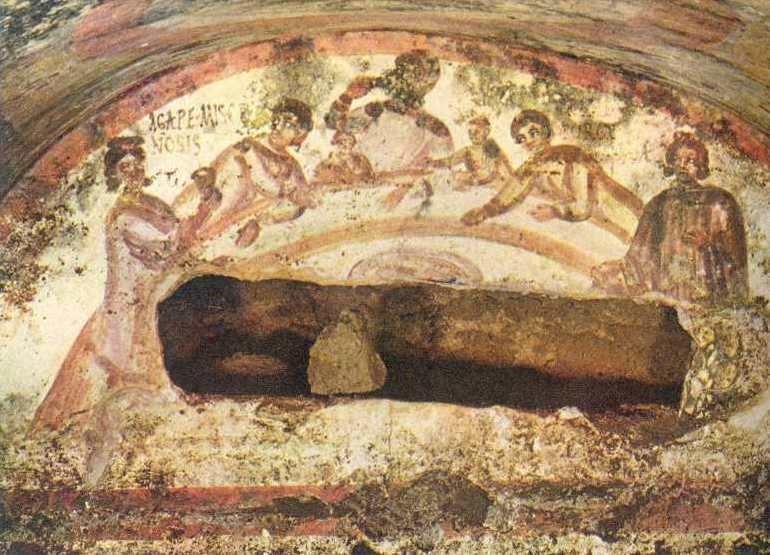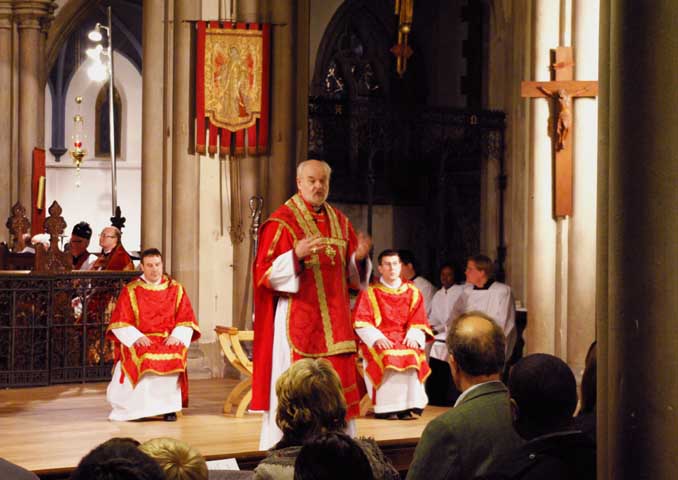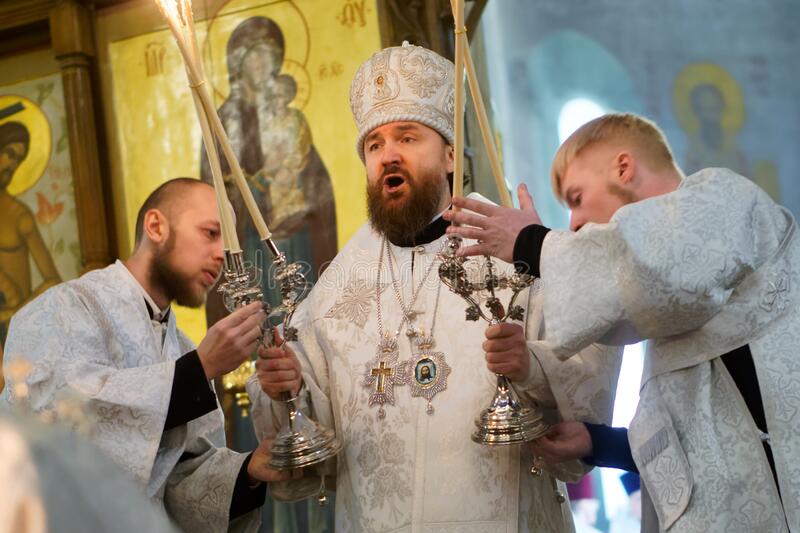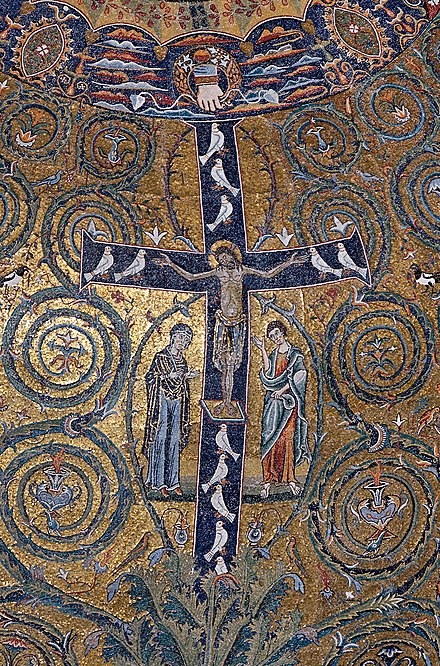If I speak in the tongues of humans or even of angels, and do not have love, I have become sounding brass rather than a resounding cymbal. And if I have the gift of prophecy … and do not love, I am good for nothing. (1 Cor. 13:1-2)
This chapter is a digression in the apostle’s instructions to the Corinthians, but it has become one of the most recognizable chapters in the New Testament. Chapters 12 and 14 of the epistle are about the Church but Chapter 13 is about the essential quality of Christian life: agape, translated simply as “love” is the clearest expression of Christian faith and practice.
St. Paul mentions angels a few times in this epistle (chapters 4, 6, and 11) but this is the only place where he refers to “the tongues of angels.” Perhaps he is thinking of the Testament of Job (written between 100 BC-100 AD), in which the daughters of Job are given the ability of ecstatic speech to make up for their not being allowed to inherit their father’s property on an equal footing with their brothers. The ecstatic speech of the daughters is described as the language of angels and cherubim.
Paul chooses speaking in tongues as his example because the Corinthians thought that it was the greatest of the gifts…. The tongues of angels are those perceived by the mind, not by the ear.
Theodoret of Cyr, Commentary on the 1st Epistle to the Corinthians
But this ecstatic speech is useless without love. Even prophecy, which St. Paul had earlier said was truly the greatest of the gifts, is useless without love.
Balaam prophesied even though he was not a prophet (Numbers 22-24). Even his donkey prophesied…. King Saul prophesied but was filled with an evil spirit (1 Samuel 16, 19).
Ambrosiaster, Commentary on Paul’s Epistles
Love is not just a quality of Christian life. Love is what is natural to divinity.
Since true charity loves all, if someone knows that he hates even one other person he should hasten to vomit up this bitter gall, in order to be ready to receive the sweetness of charity [Christ] himself.
St. Caesarius of Arles, Sermon 23.4
Many people have heard that there are four different words in Greek that are commonly all translated by the English word “love.” C.S. Lewis wrote a well-known book about these words, known as The Four Loves.






